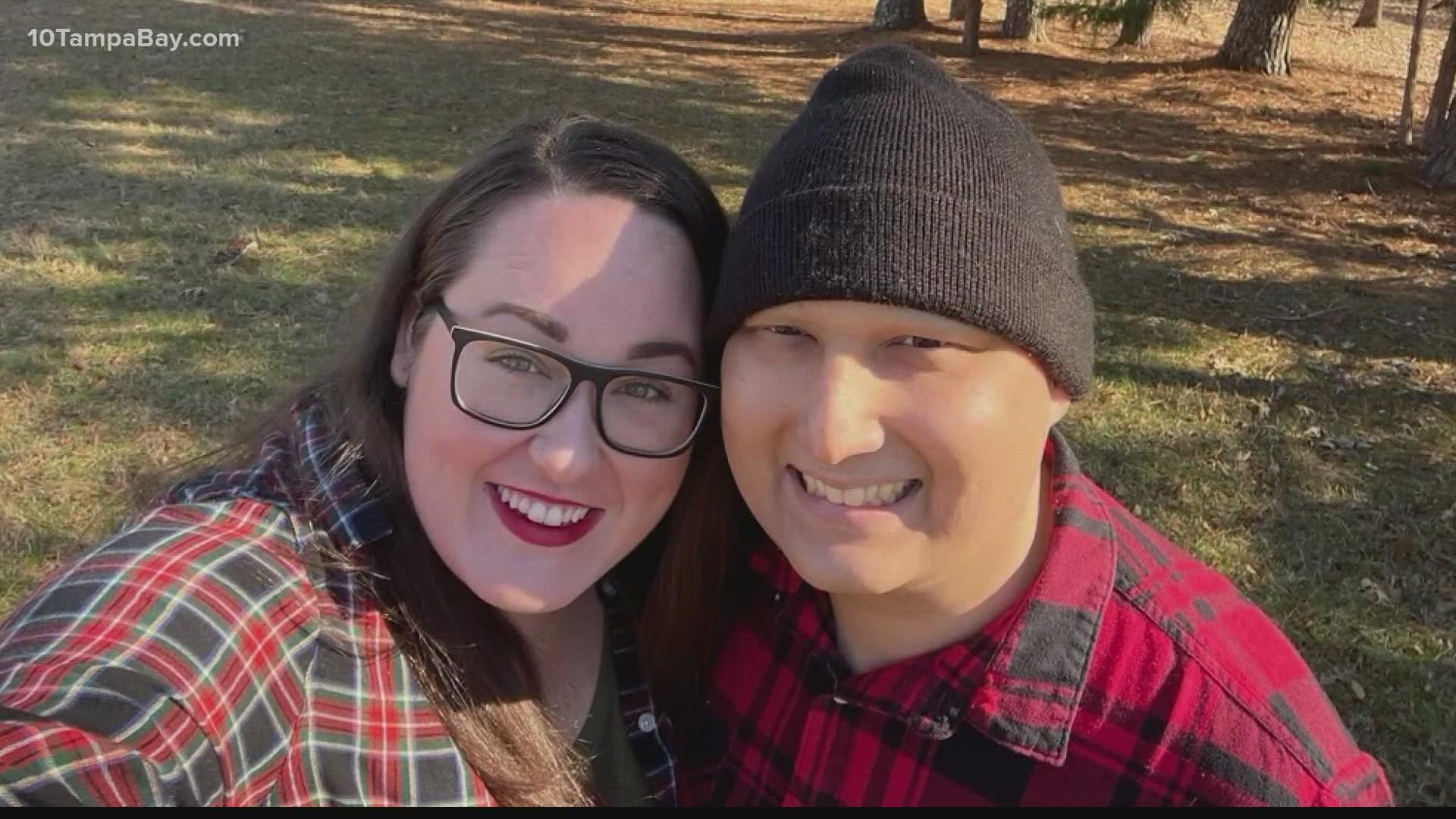TAMPA, Fla — As Florida continues to break the record for COVID-19 hospitalizations, some patients that are hospitalized are vaccinated. Many are immunocompromised.
"I will never forget the day he was diagnosed cancer. I used to say like that was the worst day of my life, but him being intubated was probably the worst day of my life," Tallie Tidwell said.
Her husband Ryan was diagnosed with acute lymphoblastic leukemia at the height of the pandemic. Months later he tested positive for COVID-19.
"At this point like it just can happen to anyone and I see the positivity rates. It's just insane, but he was definitely shocked especially with everything going on," Tidwell said.
COVID-19 landed the Cape Coral couple back at Moffitt Cancer Center for treatment. After a monoclonal antibody infusion, he got to go home, but is back after his symptoms started again.
"We met with the infectious disease doctor and they said, 'You did not develop any antibodies with the vaccine,'" Tidwell said.
According to a study from the Leukemia and Lymphoma Society, Ryan is a part of the 25 percent of blood cancer patients that do not produce antibodies despite being vaccinated for COVID-19.
"Those that are immunocompromised could be two to four times more likely to catch the infection than you are because their immune response is not as vigorous and the quantity of the immune system if you measure it will be lower. It may trickle off faster," Dr. John Greene, Moffitt Cancer Center's Chair of the Infectious Diseases Program said.
Greene says COVID-19 vaccines aren't foolproof, but can save lives, especially those who have weaker immune systems.
"Healthy people can help those immunocompromised relatives and friends by getting vaccinated and putting a wall of protection around them," Greene said.
For now Tallie will stay by Ryan's side as he keeps fighting to get healthy again.
"I think people don't get the science of it all. I believe in God and I also believe in science. Science saved Ryan's life the first time. It's gonna save his life again," Tidwell said.

